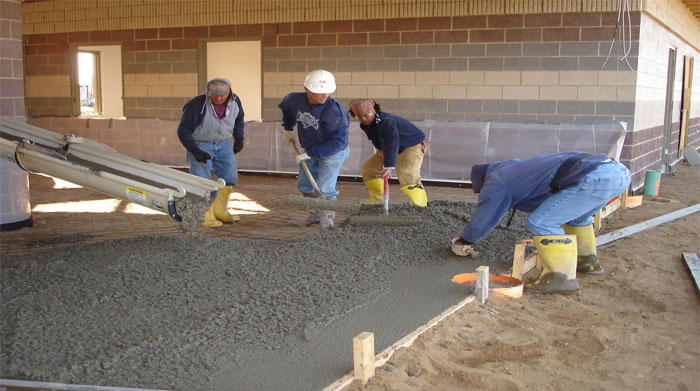Effect of water on Concrete – How to mix water in Concrete
The amount of water used in making of concrete is very crucial in achieving the strength and its durability. Let’s see the disadvantages of using excess water.
The amount of water in concrete has significant effect on its properties. For any given quantity of cement and aggregates in concrete higher the water lesser with it strength and its durability.
Excess water creates more voids in concrete making the concrete pours. If pours, harmful gases and chemicals from the atmosphere and soil enter concrete through its pours causing deterioration of concrete.
Segregation of ingredients takes place in concrete made with higher water content. The concrete becomes non homogeneous there by loosing its strength. Access water also tensed to come to the surface via compacting and accumulate on surface. This phenomenal called bleeding makes surface concrete pours and weaker with lesser were registrant. Higher amount of water in concrete also causes cracks.
The ideal water content for a bag of cement shall be in range of 20 liters to 27 liters of water per bag of cement depending on the exposes conditions of concrete. The uses of optimum quantity of water results in a cohesion, denser and incubus concrete.
Summary Effect of water on Concrete:
– Amount of water added to concrete is critical
– Higher the amount of water is Concrete, lower is the strength and durability
– Avoid excess water to ensure crack free dense concrete
– Use water between 20 to 27 litre per bag of cement






